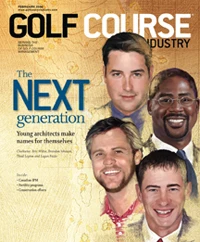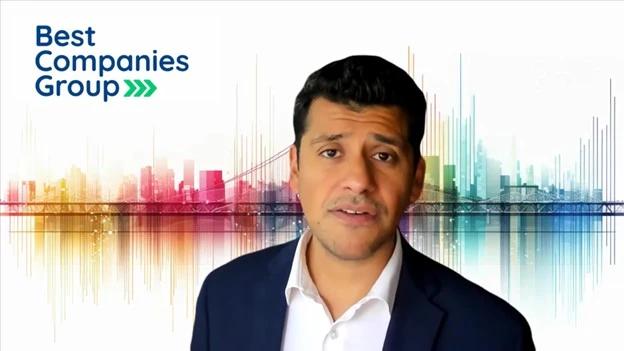Mentoring is a philosophy or a mindset in which the goal is to build and advance people personally and professionally. Mentors take an interest in what’s going on in the lives of their mentees, attempting to develop them appropriately. Mentoring combines learning with human interaction. In the past, mentoring was a simple process. An experienced manager or supervisor simply would pass down his expertise and knowledge to a young, up-and-coming employee. That’s not necessarily the case now as employees of all ages can benefit from mentoring. Experienced workers have expertise in the technical aspects of the job and managing people. Younger employees tend to have computer and software knowledge that can be passed along to senior colleagues.
The most common mentoring situation takes place when two individuals are paired, and one needs to acquire the skills held by the other. A mentee can improve the process by developing a group of people who are invested in their personal and professional development. This group can become a personal advisory board. If you’re in a position in which you don’t have a personal mentor, then the advisory board route becomes beneficial to you.
Warren G. Bennis wrote a great article, “The Seven Ages of the Leader,” about mentoring that addresses the fact that mentors don’t simply show up one day to impart advice needed to be successful. “While the popular view of mentors is that they seek out younger people to encourage and champion, the reverse is true more often. The best mentors usually are recruited, and one mark of a future leader is the ability to identify, woo and win the mentors who will change his or her life.”
Authors Robert Morison, Tamara Erickson and Ken Dychtwald address how mid-career employees can benefit from mentoring in their article, “Managing Middlescence.” After surveying 7,700 U.S. workers in June 2004, they found mid-career employees (those between the ages of 35 and 54) make up more than half of today’s work force.
“Mid-career employees are the least likely to say their work place is congenial and fun or that it offers ample opportunity to try new things,” they write. “Only one in three agrees top management displays integrity or commitment to employee development. A fifth are seeking opportunities in other organizations, and a similar percentage are looking for a major career change. But 85 percent believe career changes are difficult. Family and financial pressures outside work make them conservative in their career choices, and many can’t afford moves that would involve cuts in pay or benefits.”
The article states how the opportunity to mentor a younger employee can be energizing and invigorating to midcareer employees: “For middlescents, serving as a mentor is a personally fulfilling way to share a lifetime of experience, give back to the organization and make a fresh set of social connections in the work place.”
Authors Thomas DeLong, John Gabarro and Robert Lees address what makes a mentor in their article, “Why Mentoring Matters in a Hypercompetitive World.” They say a good mentor is someone who is absolutely credible and whose integrity transcends the message, be it positive or negative. They tell you things you might not want to hear but leave you feeling you’ve been heard. They interact with you in a way that makes you want to become better. They support your attempts to set goals for yourself, and they present opportunities and highlight challenges you might not have seen on your own. Above all, great mentors value listening and a passion towards seeing others develop and succeed. They take interest in the kind of work mentees want to do, where their passions lie and what skills they want to develop.
Research shows mentoring programs can benefit an organization through increased retention rates, improved morale, increased job satisfaction, accelerated leadership development, reduced stress and stronger, more cohesive teams. Another benefit of mentoring is that it can be used to reduce generational conflict, most frequently stemming from differences in expectations regarding work hours, behaviors (i.e., cell phone usage) and respect for those of different generations.
Organizations need to commit to mentoring continually. As an organization, regularly ask: Have we set goals for mentoring? Are we monitoring progress and measuring results? How often do we conduct performance appraisals? How often do we listen and gather feedback? Raise the bar on mentoring practices in your organization by celebrating and showcasing mentoring excellence wherever and whenever feasible and appropriate.
Committing yourself to mentoring will reap lifelong rewards. Seeing those you’ve helped develop and train succeed personally and professionally is something for which all leaders should strive. GCI
Dan Schuknecht is the assistant superintendent at Talons of Tuscany Golf Club in Ankeny, Iowa. He can be reached at dsschuknecht@msn.com.

Explore the February 2008 Issue
Check out more from this issue and find your next story to read.
Latest from Golf Course Industry
- Editor’s notebook: Green Start Academy 2024
- USGA focuses on inclusion, sustainability in 2024
- Greens with Envy 65: Carolina on our mind
- Five Iron Golf expands into Minnesota
- Global sports group 54 invests in Turfgrass
- Hawaii's Mauna Kea Golf Course announces reopening
- Georgia GCSA honors superintendent of the year
- Reel Turf Techs: Alex Tessman





